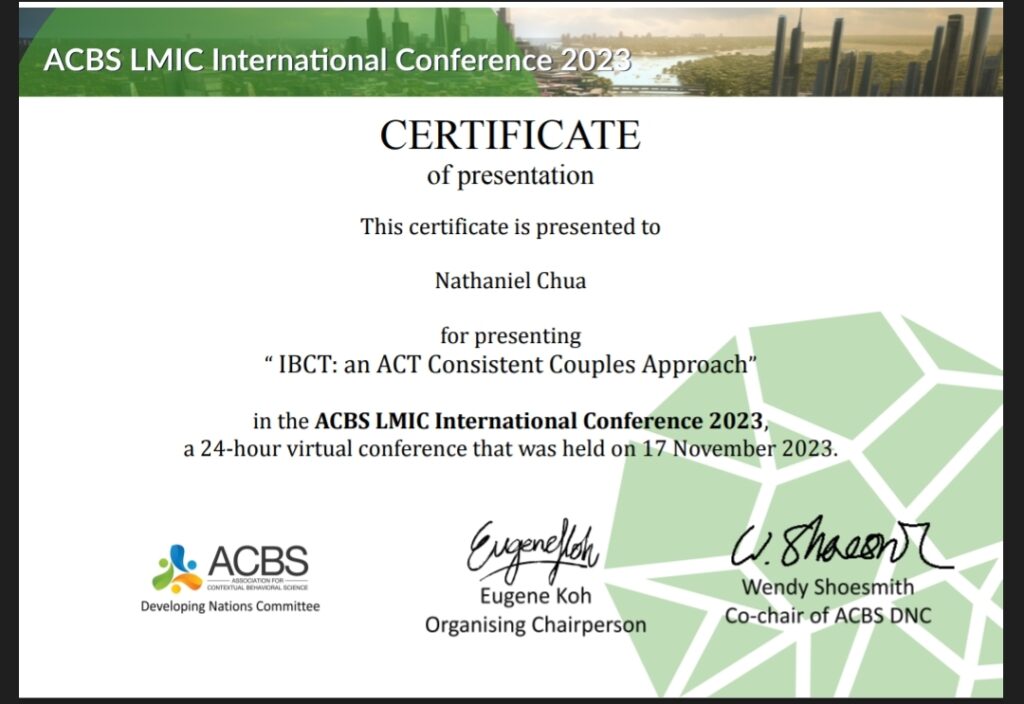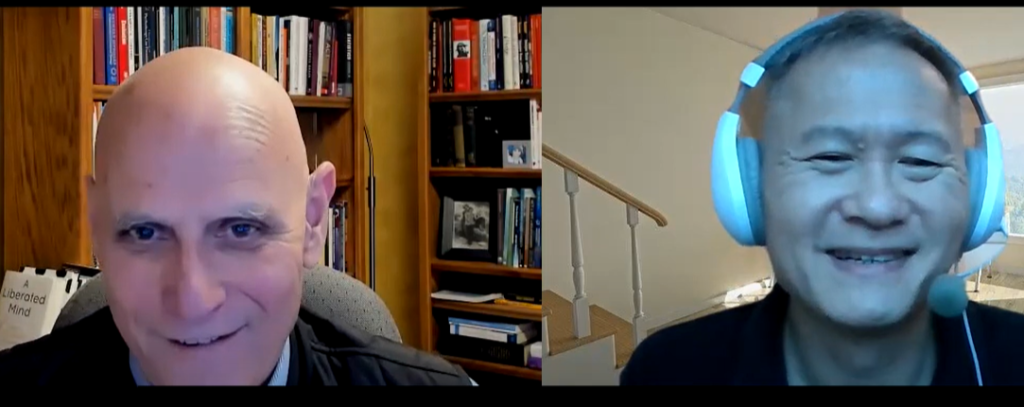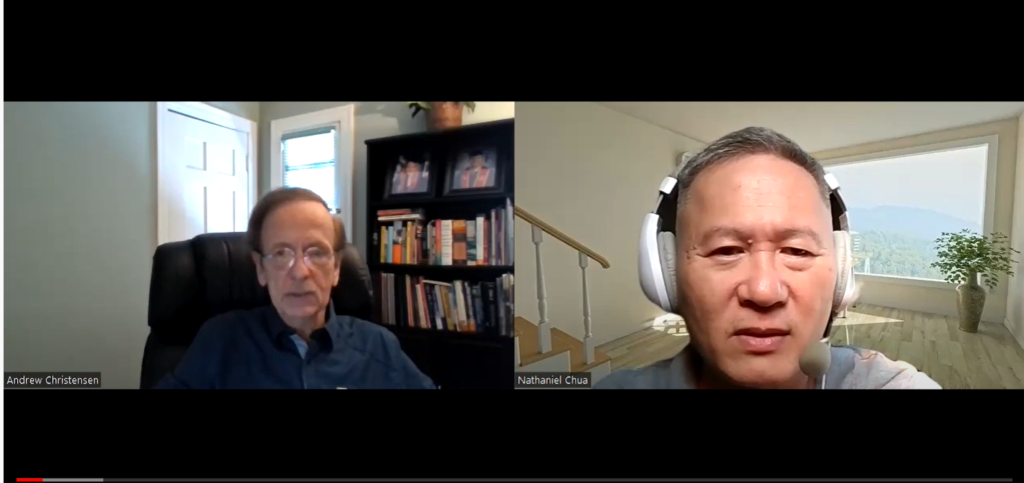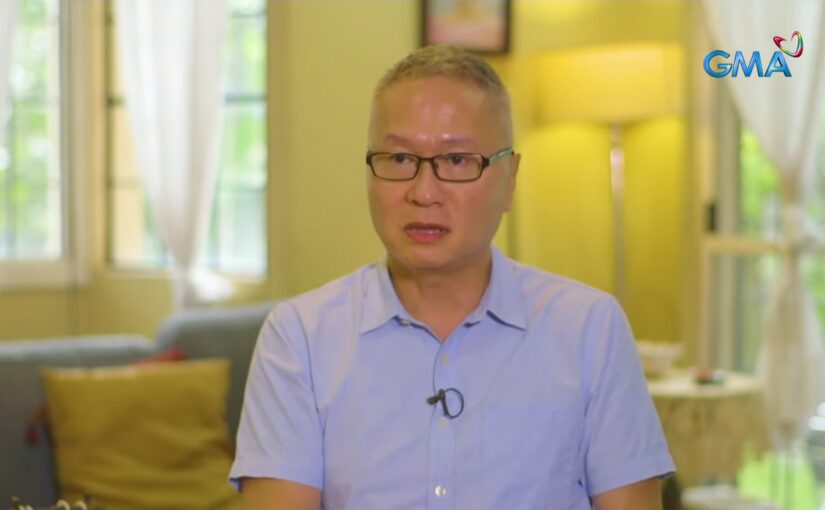Listen to this on Spotify:
Tag: Infidelity
After the Affair: A First Aid Tool Kit for Recovering from Infidelity
Our very first international collaboration!
Jacob Martinez and I, Nathaniel Chua, have just created an online on-demand workshop for people who are recovering from an affair!
We know how difficult it is for any couple to start anew in their relationship after such a devastating revelation.
We also know how hard it is for some of you to take that step to getting couple therapy.
So here’s a resource for you to learn in the privacy of your home!
Here’s an introductory video featuring Jacob Martinez and Nathaniel Chua:
Click the link below to see how you can sign up for it and get access for one full year!
https://aftertheaffair.vhx.tv/?fbclid=IwAR3shgo21i4PMWMBDCq4CfLqk4z7FhxPDI6MdPciUr0rfRL2rWfYufyrz7w
Should you ask for the sexual details of an affair? Video!
Should you ask intimate details about an affair?
by Nathan Chua
One of the most common questions that couples ask on their road to recovery from an affair is whether it is helpful for a hurt partner to inquire about intimate details. This is quite expected and an understandable reaction. However, couples need to be sensitive to the results of such inquiries. It is also not surprising to see the participating partner feel uncomfortable sharing sexual details about the affair.
There are some experts who say that the best advice a therapist can give to a couple is to refrain from going into the sexual or graphic details of the affair. Although this may sound like good advice to many and could probably work for a majority of couples, it has the potential to backfire. The thing that I like about the work of Drs. Andrew Christensen, Brian Doss, and Neil Jacobson, is its focus on functional rather than formal rules of engagement between couples. Formal rules usually involve teaching couples to follow a rule based on what it says alone with less consideration of the unique contexts that surround each couple. It’s like following a rule just because. Functional rules are more sensitive to contexts as well as the consequences that occur when they are adapted by the couple.
A Word About Context:
When I say context, it doesn’t only mean the physical environment of the couple. Context can involve the very thoughts, feelings, and memories that each partner has going into the relationship as well as within the relationship. What mindfulness teaches us about this is that we learn to see things from each other’s context or perspective. This is rather hard to see when couples have narrowed their options to survival strategies like fight, flight, or freeze! That would take a whole set of blog posts to discuss! So let me leave it at that.
In therapy, I allow couples to engage in their conversations about an affair with a difference. That difference is to learn how to do them better. How is this done when it comes to discussing sexual details?
These questions are obviously mostly going to come from the hurt partner. Again I don’t want to give formal rules about this, so please be sensitive to what works in your relationship and what doesn’t. If what you’re doing helps you to move on in the healing or renewing process of your relationship, then go ahead and keep it up. However, formal rules can end up frustrating both parties. The couple makes a turn for the worse when these questions are asked devoid of context from the injured partner. When they turn into demands without reasons or, just because the injured partner is angry and the participating partner must pay, conversations can become fraught with anger. At times they can become rhetorical and sarcastic. Interrogation has become a way to make accusations. And for most of us who have not learned what context sensitivity means, couples can go about doing what they’re doing because sometimes they do end up getting what they want. As human beings, we have a tendency to keep doing what we’re doing even if the success rates go down on our attempts to remove difficult thoughts and feelings. Minor, short term successes can obscure long term consequences. And for couples who have experienced infidelity, the injured partner believes the participating partner is responsible for removing these thoughts and feelings. This is an impossible task for anyone who’s a human being, let alone a partner who is also experiencing difficult emotions like anxiety and fear about possibly losing the relationship, and guilt about having had an affair. The injured partner can get rewarded sporadically when the participating partner grudgingly surrenders to the demands. Unfortunately, such enduring, surrendering, or survival moves by the participating partner more often only last for a short while before the pattern of giving in to keep the peace becomes unbearable. Thus, an explosion of pent up feelings occurs and the couple escalates.
The key here is for the injured partner to be more noticing of the softer emotions inside and able to enunciate them with less criticism and accusations. Focus on asking for information and telling the partner why that is important to know. Usually, the questions involve some kind of insecurity or a wound that informs the participating partner that such questions come from images or memories of past sexual hurts or rejections, if these are out in the open. There could be strong feelings of insecurity about the injured partner’s attractiveness. These types of revelations are more likely to induce compassion rather than defensiveness or withdrawal from the participating partner and allow for a more compassionate response to happen.
So let me get back to what I mentioned earlier in this article. In the counseling room, we are not attempting to help you end your difficult conversations. We are there to help make better conversations, because like it or not, there will be conflicts in your relationship as your contexts change from situation to situation. Learning the skills to make better exchanges in conflict situations can mean that these conflicts lead you to a richer closeness rather than rip you apart.
What to do after an affair
by Nathan Chua
This is intended to be a first aid kit for those who are going through a difficult discovery of an affair. Please note that this is not a substitute for seeking professional help. Affairs are situations that would likely require trained assistance. Some who have taken such events lightly or have let these incidents slip by, often end up having to deal with it later with loads of pent up emotions that make it even harder to recover from.
I am not sure if I ever had a blog post that enumerates a list of do’s and don’ts when it comes to dealing with cheating in committed relationships, particularly because applying such rules can at times do more harm to an already struggling relationship. Let me emphasize to you, my audience, that I am listing them here not because I want to give you easy answers to your situation. It is exactly that your situations are unique that I want you to take these tips with a grain of salt. I am showing you a list of rules that can generally apply to most cases of betrayal without having the paradoxical effect of the couple ending up fighting about the rules instead of facing the problems affecting the relationship.
Tip 1: Know where responsibility lies
- It is often that the hurt partner puts the full blame of the affair on the participating partner. Yes, that is a fact that the affair or the recourse to an affair is the sole responsibility of the participating partner. There is no excuse for an affair even as there are major problems in the relationship. However, the difficulties in the relationship is the responsibility of both the partners. We all have reasons for our behavior but they are not to be considered excuses. Providing excuses can lead to the participating partner to blame the relationship for the affair, and for the hurt partner to justify their past behaviors in the relationship. Reasons are different from excuses or justifications for either partner.
Tip 2: Problem-solve in the immediate aftermath
- You and your partner may decide to live separately for the meantime if situations at home become too difficult to handle. This could either be because you have a tendency to escalate or are afraid of how your escalations can affect your children.
- You may want to get yourselves checked for possible sexually transmitted diseases.
- Couples are free to decide if the relationship is worth keeping but making a decision in an emotionally charged state may not be in their best interest. Delay such decisions until you have returned to calmer emotional states.
- Withhold conversations about the affair until you are in therapy. Early on, it may be too much of a stretch for couples to know how to handle the problem without escalating. Remember, what we want is for couples to move forward in their relationship rather than take steps that bring them to even more hurtful conversations. Bring these conversations to the counseling room with your therapist.
Tip 3: What questions to ask and how for the hurt partner
- It is understandable that the injured partner will resort to questions fraught with accusations and harsh criticisms towards the participating partner. Focus on what you want to know and tell your partner why that is important to you. Let your partner know that this is part of the process of moving on rather than a way of punishing your partner. There are tendencies for the injured partner to ask rhetorical and often sarcastic questions to their partners. It is advisable that you make factual disclosures and revelations of your underlying softer emotions of fear and anxiety towards the possibility that this could happen again.
This will be all for now. For part two of this post, I will be discussing what the participating partner can say or do that can help in the moving on process. It will also involve how partners can deal with future challenges that can happen if the participating partner is still able to remain in touch with the affair partner. Another common question is, “Is it okay for the hurt partner to confront the affair partner?” See you in the next blog!
ACT Matrix for Chronic Cheating or Infidelity
Interview with Dr. Andrew Christensen
Interview with Dr. Andrew Christensen, Co-developer of Integrative and Behavioral Couples Therapy
I had a wonderful time with Dr. Andrew Christensen in this interview! Listen to him talk about his background, Integrative Behavioral Couples Therapy, Infidelity, Sexual Concerns, and how to ask your partner to join in couples therapy.
Listen to this interview in our Spotify channel:
https://open.spotify.com/episode/0bQZ5ie5OkmUlViT4obJzi?si=toUwJ9yuTYaXZV6HzctmPQ
Here are some useful links for you to find the ebook version of Dr. Christensen’s books as well as a self-help website you can use to improve your relationship as a couple:
Reconcilable Differences E-book:
https://www.amazon.com/dp/B00GY6S62I/ref=cm_sw_r_apan_GH7J3JRNF0AY6AE425JC
Reconcilable Differences Audiobook:
https://www.amazon.com/dp/B084H368ZZ/ref=cm_sw_r_apan_GPN806S3W3QDJNPHM69T
Integrative Behavioral Couples Therapy E-book:
https://www.amazon.com/dp/B08CLTFHXR/ref=cm_sw_r_apan_460Y3CXDVMF3Q5SVKZ0G
Integrative Behavioral Couples Therapy Audiobook:
https://www.amazon.com/dp/B08VF8LWDZ/ref=cm_sw_r_apan_3Q2NZRJF9JGHXQB34T2E
Coping with Tunnel Vision During a Crisis
by Nathan Chua
I am quite certain that most if not all of you, my readers, have experienced being caught in a difficult situation and having to focus mainly on the problem at hand. When there is a crisis, we often develop tunnel vision and end up doing greater harm to ourselves and others. For example, when your teenaged child comes home really late, tunnel vision can lead a parent to think that the child doesn’t care and that the only solution is to show your anger in order to keep them in line. These situations don’t usually end up well. Often, what could have been a moment of tenderness and bonding, turns into a messy fight.
Now don’t get me wrong. Tunnel vision is not always harmful. There are plenty of times when you and I need it. If your toddler suddenly feels the urge to go towards an open window and tries to climb over it, tunnel vision will help you get your child out of that precarious situation. In these instances, following the dictates of your mind works well for you and the survival of your child. If there was a wild animal chasing you thinking you are prey, tunnel vision is what you need in that moment to come out of it alive.
The topic I’d like to discuss here is about the times when developing tunnel vision and instantaneously acting on it, may not be a move in our best interest. A timely example would be that incident when we saw a famous actor in Hollywood come up to a comedian in front of millions of people watching the Annual Academy Awards for motion pictures. We can say that Will Smith developed tunnel vision in the heat of the moment. Although the context of the moment would certainly make hurt feelings understandable, standing up and committing a violent act is the proverbial solution that becomes the problem.
On a larger scale, think about the war in Ukraine. That tunnel vision can cause egregious acts done against our fellow humans. To use an example closer to home, how many times have we seen road rage cause tunnel vision, rendering someone who has no record of violence helpless enough to physically or emotionally harm or even kill someone for a slight.
So here are some ways that I borrowed from Dr. Steven Hayes’ book, “A Liberated Mind,” that could be helpful for us to cope with tunnel vision when it occurs. In my opinion, it is but natural for us to get into that mode of mind, it only takes some mindfulness in the moment to avoid as I had mentioned earlier, making the solution become the problem.
- Try to sense in your body where you feel this current issue is affecting you. Is it a heaviness in the chest? Does it feel like a weight on your shoulders? Tightness in your head? Notice these sensations and give it a good clean yes. Give yourself a minute to experience this without defense.
- Have you seen anyone you cared for in your family who had suffered something like this? Recall that moment and see if you can purposefully witness their struggles with compassion.
- Say yes to the thoughts that come with this problem. See if you can drop any kind of struggle with it and notice them for what they are, just thoughts.
- Is there something here that you can learn from if you project yourself into the future? Is there something in this experience that can help you learn something about your life’s journey?
- See if you can find out why this is so painful for you. Behind anything that hurts you deeply, there could be the values you hold dear. Maybe you’re hurt because you care about honesty or openness. Maybe you are angered because of your love for justice. What could be the loving and caring thing to do at this moment?
- If this was a story in a book you were writing about a hero’s journey, what could this moment be for your hero? How can this moment make your hero become wiser and more alive?
- Do you have other memories attached to this present problem of yours? Can you willingly say yes to just one more of these?
- If there’s someone that you blame for this, can you think of times that you may have done something similar to what they’ve done to you, even if it was in a less hurtful way? Sometimes we point our problems towards other people and avoid seeing how we have in the past behaved in the same way.
- If you had a friend who had this problem, how would you feel towards them? What would you suggest they do?
- You have picked something that your mind says you have to say no to or that you shouldn’t have. Is there something that’s hard for you to give up in order to let go of that no? Perhaps saying yes to the hurt feelings would indicate that you are a weak person. Can you give up that struggle with that thought and allow that to be there just as a thought?
- If you could have these thoughts and feelings without having to fight them, what would you be able to accomplish in your life? Think about taking this along for the ride of your life or the journey you set out for yourself.
That’s all for now folks. Hope this will give you a wider perspective every time your mind gives you that urge to go into tunnel vision.
After Infidelity
by Nathan Chua
What now? Couples who have experienced a betrayal are often at a loss about what to do with the current state of affairs. Yes, there will be the initial shock and anger and bickering. At times, there might even be physical altercations. No doubt a betrayal is the most common reason for couples to come to therapy and is also one of the most difficult problems to come out of.
Many have been surprised to find out that the effects of infidelity can linger on for many years in spite of signs that the betrayed partner has already moved on. In some cases, it can also happen that the betrayed partner is unable to acknowledge the painful memories that still cast a shadow on the relationship. This may be for fear of revisiting old wounds and being labeled as unforgiving or being stuck in the past by the offending partner. There are multiple aspects that need to be addressed in the aftermath of an affair. I hope you find some hope in the tips I offer here on your road to recovery.
For the offended party:
Tip 1: You will very likely have flashbacks. Flashbacks are different from memories as they signal to the person that the abuse is still occurring in the present. Suspicions show up regularly. On the other hand, a memory is simply a recollection of events from the past which does not necessarily have to be acted on or suppressed. Betrayed partners, if the flashbacks last long enough, will begin to wonder if there is something wrong with them for being unable to move on from the hurt. In fact, there are quite a number who have actually seen a doctor to get medication for their symptoms. The drawback here is that even as these flashbacks are to be expected, many end up only getting temporary relief from the medication. They now not only have to worry about the flashbacks, they also get concerned about the fact that they are still having them in spite of the medication. Frequent fights that seem to come out of nowhere can result from the self-stigma that happens due to frequent failed attempts at suppressing painful memories.
Tip 2: Your partner, if they are sincere, will feel guilty about the transgression. The more you attack them the more they would want to withdraw from the conversation. Unfortunately, the more the offending party withdraws, the more the betrayed partner feels insecure and suspicious of the silence or the dismissive remarks. This is the loop that couples end up experiencing because of their inability to cope in more effective ways.
Tip 3: Get in touch with your softer emotions that are normally hidden underneath all that anger and hatred. Think about what you want to stand for at this moment. Ask yourself, “What would you like your kids to see in how you confront difficult situations such as these? If you were being the person you want to be in these challenging times, what would you say to your spouse?”
For the Offending Party:
Tip 1: Realize that your partner has gone through a form of trauma as some experts would say. Your partner is not doing this on purpose. It is impossible to predict how long the effects will last on your partner. Your partner will never be able to forget what happened but you can both start building new memories of warmth and compassion. Your withdrawal will reflect coldness and a lack of sensitivity to someone that has been hurt very deeply.
Tip 2: Validate your partner’s feelings and avoid dismissive comments. Validation does not mean you agree with what your partner is saying. It is just a means to let your partner know that you understand what they are going through and will be there in times when the emotions become overwhelming for them.
Tip 3: The best way to react to such an unfortunate turn in your relationship is to be validating and reassuring. Many offending partners have problems tolerating the mood shifts that come with a betrayal. However the more impatient you get, the more your partner will suspect that you have yet to come clean.
Is it time to leave?
My training in couples therapy has taught me that there needs to be certain conditions for a couple to remain together. Of course, the default is always toward saving the relationship. Infidelity is solely the responsibility of the offending partner but the relationship itself is the responsibility of both. The betrayed partner is never to be blamed. At this point, the only recourse available is to find ways to recover in more effective ways.
Many couples experience a regeneration in their relationship after a betrayal. For one, with some help, couples can learn to treasure their relationship even more and not take things for granted. Secondly, couples can also learn how to get out of their respective comfort zones in order to speak more openly with each other. The things that they can learn in therapy can also serve them in the process of creating what some experts would refer to as marriage (or relationship) number two.
In my years of working with couples who have suffered from the effects of an affair, I have learned that recovery can be summed up in an old prayer written by Reinhold Niebuhr, which I will paraphrase here: When suffering and working through infidelity, it is important that we understand what is meant by having the serenity to accept the things we cannot change; having the courage to change the things we can change; and finally having the wisdom to know the difference.
Listen to the podcast version of this blogpost on Spotify! Click here!
Do you need counseling?
Do you need counseling for depression, anxiety, trauma, relationship (marriage, family) problems, insomnia, anger management problems, infidelity, teen parenting issues, grief processing, addiction, procrastination, work performance, and even weight issues?
We are here to provide you with evidence-based approaches that are backed by reliable and valid scientific research!
We provide both in person and online video counseling for your convenience.
Please text (preferred) or call:
Mobile Number: +63 917 886 5433 (LIFE)
Available also on Viber and WhatsApp!
(The best option is to message this number through Viber or WhatsApp and we will gladly call you back or reply!)
You can also call our booking hotline!
Booking Hotline: +632 8396 6007
The booking hotline is available 24/7!
Email:
Connect with us through Facebook, follow us through Spotify and YouTube.
Our offices are located in Quezon City, Metro Manila, Philippines.
CMS Clinic
2nd Floor Back to the Bible Building
135 West Avenue, Quezon City, Metro Manila, Philippines
and
M Place South Triangle
8004 Mother Ignacia Avenue, Quezon City, Metro Manila, Philippines

Nathaniel Chua is a member of an international organization called the Association for Contextual Behavioral Science (ACBS). He became chair of the Diversity, Equity, and Inclusion Special Interest Group (DEI-SIG) of ACBS; the first Non-North American to do so.

Nathaniel Chua has a Master’s Degree in Counseling and continues to learn more of the most cutting-edge approaches to working with the human condition.
Below is Nathaniel Chua’s first virtual talk held on November 17, 2023 in front of an international group of therapists from Low or Middle Income Countries (LMIC). He is the first from the Philippines to do this:
What is One Life Only Counseling about?
- You can be assured that your information with be kept completely confidential.
- You will be respected regardless of your religion, gender preference, ethnicity, economic status, and even your personal lifestyle and values. We are LGBTQIA+ friendly!
- Your counselor will not impose their values and beliefs on you.
- We use a scientific model of counseling that has precision, depth, and scope. Below are bullet points to let you understand better what we mean by this:
- By precision we mean that our approach to counseling tells you how these mechanisms of change work. It is not enough to say that a sense of self-awareness is what creates changes in people’s behavior. Our approach tells us how self-awareness works as one step within a set of processes that can lead to lasting change.
- Depth means the approach we use does not conflict with other theories and models of therapy. In fact, many other approaches can be used as forms of treatment towards greater psychological flexibility. Our approach for instance does not conflict with findings in the area of attachment theory, gestalt therapy, psychodynamic therapy to just raise a few examples. It cuts across other levels of analyses.
- Finally, by scope we mean that our approach comes from the discovery of the smallest set of processes that cuts across multiple mental health concerns from anxiety and depression to personality disorders to psychosis, etc. It is a transdiagnostic approach that seeks to understand what many of the symptoms or syndromes come down to, so these processes can be targeted to address many, if not all of the disorders listed in different diagnostic systems.
- We are also probably the only counseling service in the Philippines that follows a certain philosophy of science with certain a priori assumptions about human nature. With this in mind, we offer a holistic consistent approach to life’s challenges that is a-ontological, monistic, and pragmatic.
- Furthermore, ineffective behaviors are addressed by their classes and functions, therefore making our model of therapy parsimonious and much easier to apply to daily living. Most of our clients are empowered to use the skills they learn in therapy to apply to a multitude of challenging situations without having to rush to a therapist to address specific concerns. If you remember Einstein, everything can be explained by one simple equation, E = mc squared! In other words, we do our best to be ACT-Consistent or as some other experts would call it, we practice, ACT Fidelity!
The approach we use is also one that is endorsed by the World Health Organization as an effective psychological tool for coping with any kind of life crises! It can be described as a kind of psychological vaccine that has been found to be effective in improving and promoting mental resilience in the face of many, if not all kinds of life challenges.
Here’s a paraphrase from Dr. Steven C. Hayes in my interview with him on April 5th, 2022:
“Here’s what the World Health Organization, the best public health and scientific group in the world says about this protocol, this extensively tested protocol is helpful for anyone who is stressed, for any reason, in any circumstance.”
Since 2019, we have been very excited to offer this type of a radically different approach to therapy that is not just about relieving symptoms, but also about helping people towards creating lives imbued with meaning and purpose.
Here’s a video about what makes One Life Only Counseling Services different:
You can read the written version of this video through this link: https://www.onelifeonly.net/about/what-makes-one-life-only-counseling-services-different/
Here is a recent interview for an article on Philstar Life featuring Nathaniel Chua and a legal practitioner about marital sexual consent:
https://philstarlife.com/news-and-views/928796-consent-rape-marriage-explainer







Here a video of Nathan Chua’s appearance on a “Dapat Alam Mo” Episode:
Here’s a solo interview of Nathan Chua with an ACT Matrix Expert and Counselor from the United States, Jacob Martinez:
Interviews with the experts:
Here are two interviews with the two experts that have had a huge impact on my work in recent years. They are with Dr. Steven Hayes and Dr. Andrew Christensen. Here are the videos:





